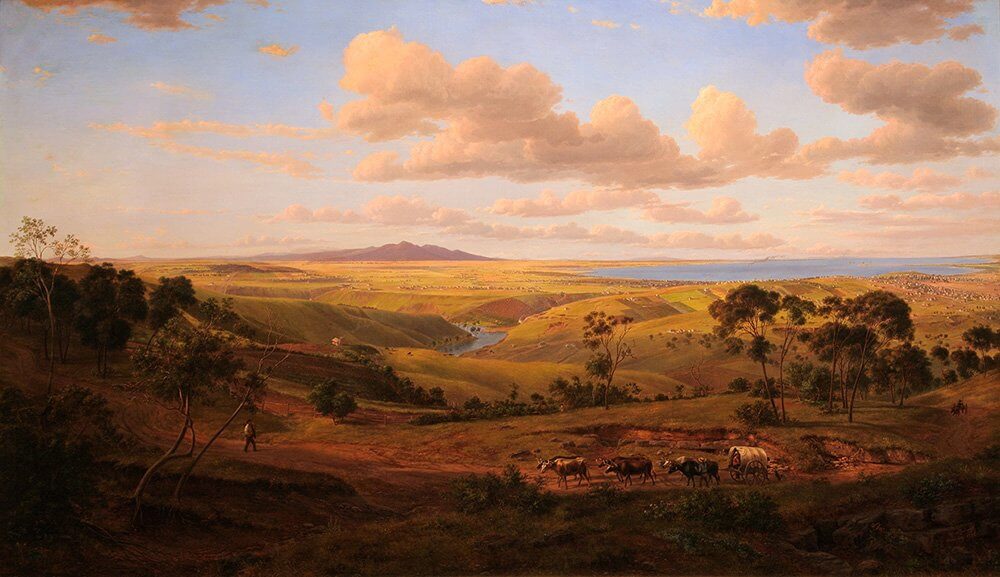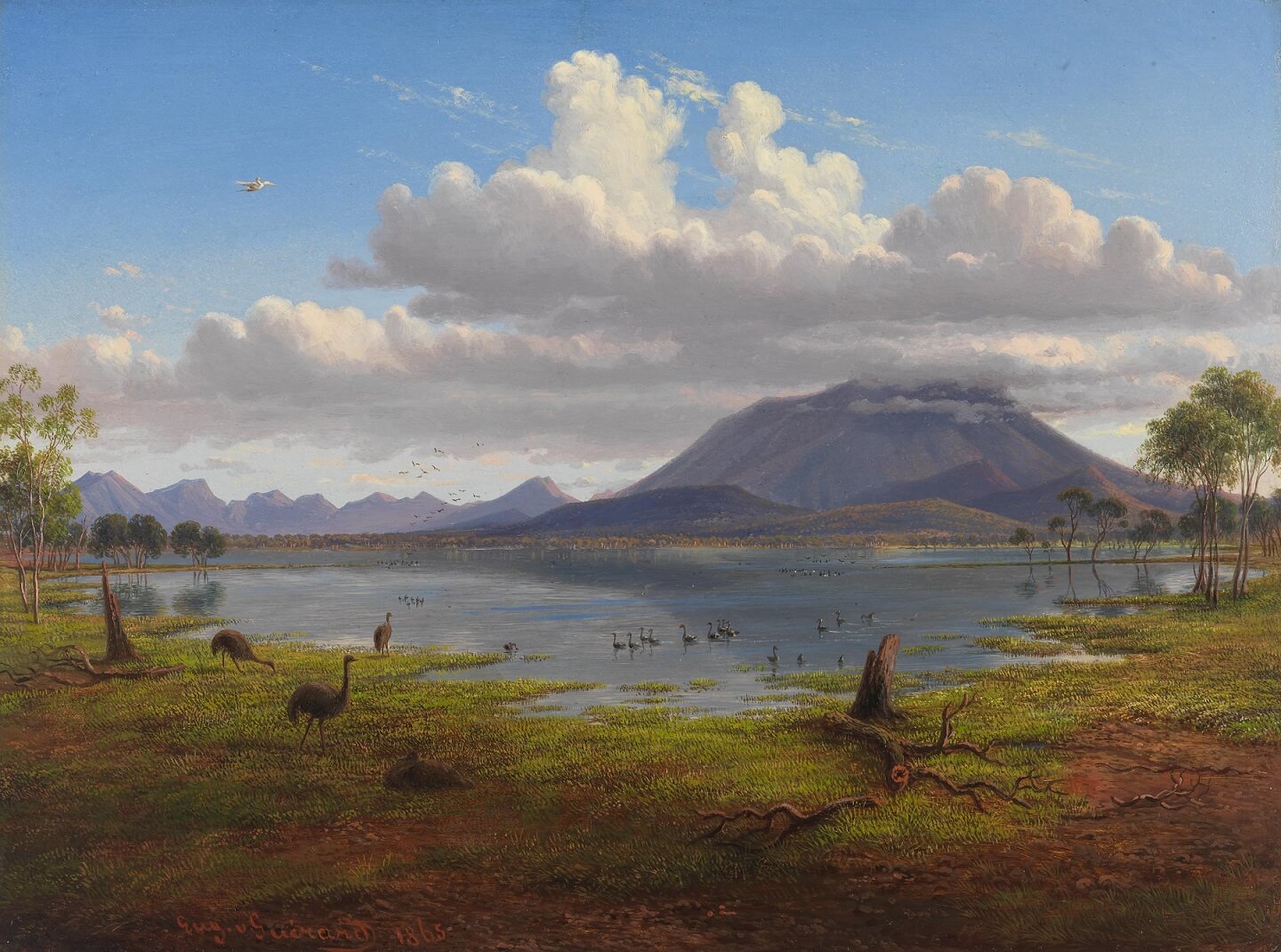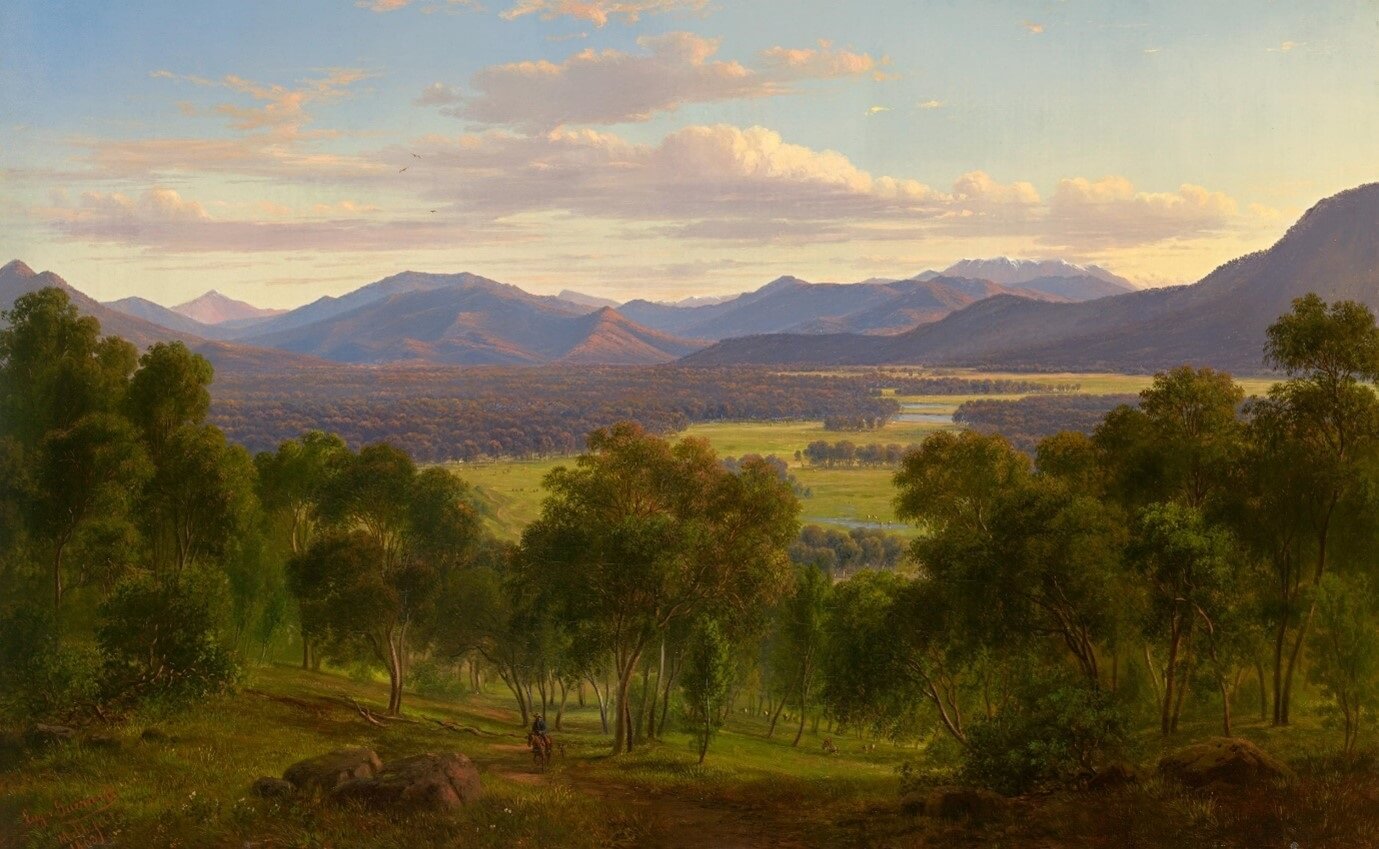Early European pastoralists exploring inland from Port Phillip found a landscape that seemed fashioned expressly for their purpose. Rich grasslands stretched towards the west, with gentle hills, sufficient water and fine timber. Major Thomas Mitchell, Surveyor-General of New South Wales, travelled through the western regions of what would be Victoria in 1836, and was so impressed by the country he saw there that he called it ‘Australia Felix’, translated roughly as lucky southern land. On 13 July he recorded in his diary:
We had at length discovered a country ready for the immediate reception of civilised man; and destined perhaps to become eventually a portion of a great empire. Unencumbered by too much wood, it yet possessed enough for all purposes; its soil was exuberant and its climate temperate; it was bounded on three sides by the ocean; and it was traversed by mighty rivers, and watered by streams innumerable. Of this Eden I was the first European to explore its mountains and streams, to behold its scenery, to investigate its geological character and, by my survey, to develop those natural advantages certain to become, at no distant date, of vast importance to a new people.
(Thomas Mitchell Three Expeditions into the Interior of Eastern Australia vol II, chap. 3.8)
Eugene von Guérard, Mount William and part of the Grampians in West Victoria, 1865
Reproduced courtesy National Gallery of Victoria
Mitchell and others assumed that the landscape they observed was a product of divine creation. In his painting Mount William and part of the Grampians, West Victoria 1865 Eugene von Guérard adopted a similar aesthetic, recording the scene on Mount William Station as if it was a natural landscape, even 30 years after European settlement. His romantic painting Spring in the valley of the Mitta Mitta with the Bogong Ranges in the distance, 1863 is similar.
Eugene von Guérard, Spring in the valley of the Mitta Mitta with the Bogong Ranges in the distance, 1863
Reproduced courtesy National Gallery of Victoria
Although Mitchell and others observed many First Nations people on their travels, and relied on specific individuals to guide them, they had no understanding of the complex management practices that lay behind the ‘park-like’ vistas they admired. In fact, First Nations people had nurtured their country over millennia, firing the bush at intervals to remove dead wood, thin the scrub and protect against wildfire, creating in the process the grasslands that allowed them to hunt kangaroo effectively. A deep understanding of the environment allowed them to move through their country with the seasons, harvesting edible roots, catching fish, shellfish, eels and game, shaping the country in turn.
Henry Godfrey, Loubras, November 1st 1843
Reproduced courtesy State Library Victoria
First Nations women gathering murnong (yam daisy).
Compared to those who came later, First Nations people trod lightly on the land. While changing and shaping their environment, survival depended on preserving plants and animals in the long-term, safeguarding the food supply for the future. Low population densities and sustainable food practices enabled them to live within the resources of the land.
This balance was upset soon after European pastoralists arrived. They laid claim to the rivers immediately, then spread inland at an astonishing rate. By the late 1840s there were more than 15,000 European settlers and six million sheep, already dispersed over millions of acres of grassland. By 1861 there were 123,000 people, and pastoralists held over 41 million acres in pastoral leases. Another 70,000 acres were planted with wheat. It was a devastating invasion of a fragile landscape. First Nations people were restricted to less and less of their country and were soon dependent for survival on European rations.




